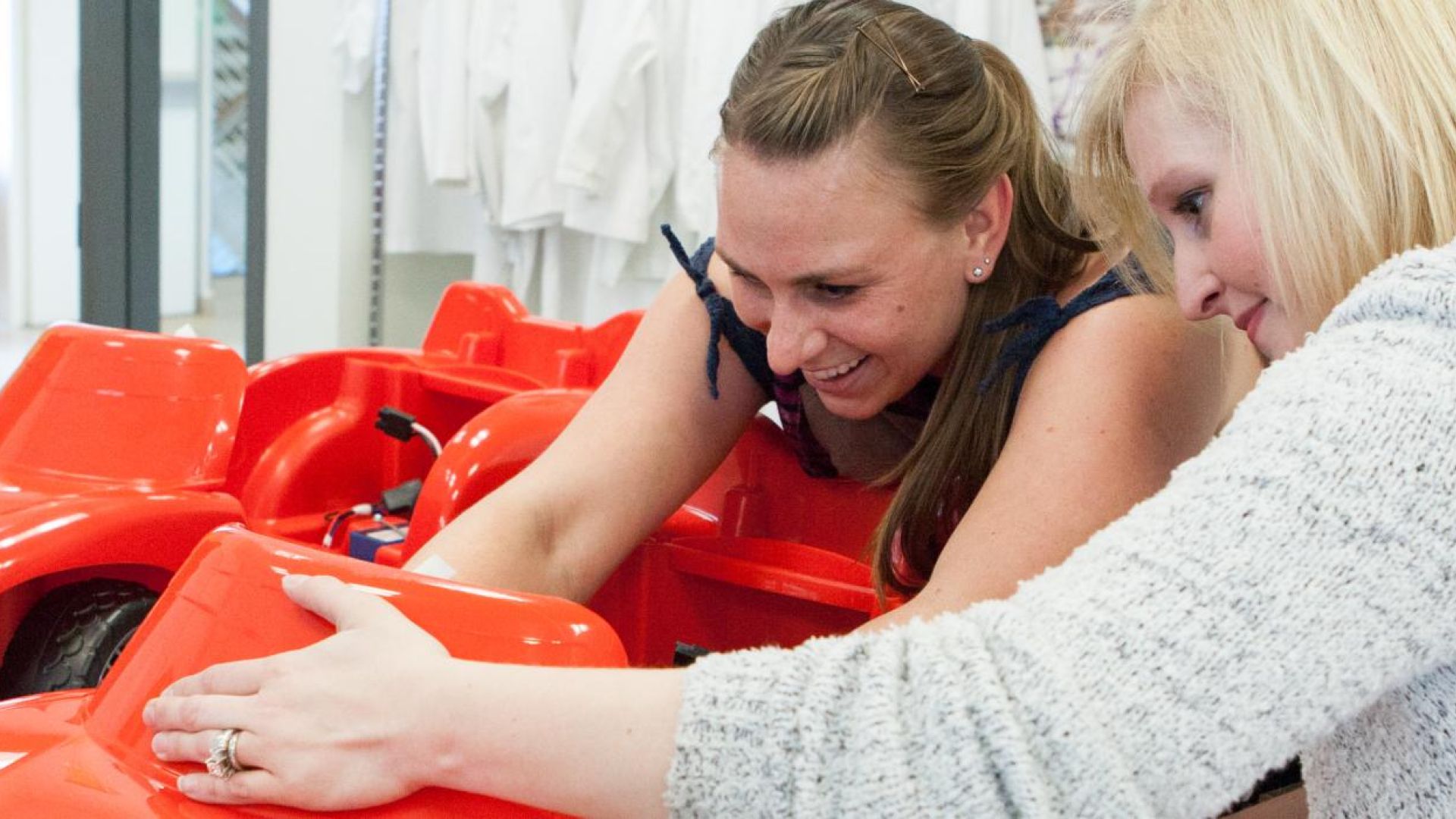The curriculum consists of academic, laboratory, and distance-based learning experiences integrated with both part-time and full-time professional fieldwork. Entrance to the program is in the fall semester only; all courses and fieldwork are taken sequentially and completed prior to graduation. The program is designed as a full-time cohort model. The Occupational Therapy Student Resources webpage contains more program information, including the student handbook, academic calendar and course schedules.
After successful completion of all requirements for the degree, the student is eligible to take the National Board of Certification for Occupational Therapists (NBCOT) certification examination.
Upon successful completion of this examination, the examinee becomes a nationally registered occupational therapist, certified for practice and eligible for state licensure.
Design of the Curriculum
The ultimate goal of our occupational therapy transformational education is to prepare occupational therapists to serve people to participate in the full range of life's everyday activities, or occupations. Scientific evidence shows that meaningful occupational engagement leads to improved health and well-being. The curriculum is supported by the School of Occupational Therapy’s mission, vision, values, philosophy, and design.
- Curriculum Grid - Class of 2028 (pdf)
- Curriculum Grid - Class of 2027 (pdf)
- Curriculum Grid - Class of 2026 (pdf)
Full degree requirements and course descriptions are listed in the academic catalog.
Clinical Education
The School of Occupational Therapy's distinctive clinical education program involves three components beginning with practicum experiences in the community and progressing to Level I and Level II fieldwork experiences, over 24 weeks of full-time fieldwork education, plus a 14-week doctoral internship.
The two Level II fieldwork experiences are opportunities to apply academic learning to the practice of occupational therapy in a variety of practice arenas such as developmental disabilities, mental health, physical rehabilitation, K-12 schools, and geriatrics.
The School of Occupational Therapy affiliates with numerous facilities within the Portland Metropolitan area, Oregon, and the United States. Fieldwork sites are offered in diverse geographic locations, including several options in international settings. New fieldwork sites are continually added in order to provide variety and quality to the student's fieldwork experience.
